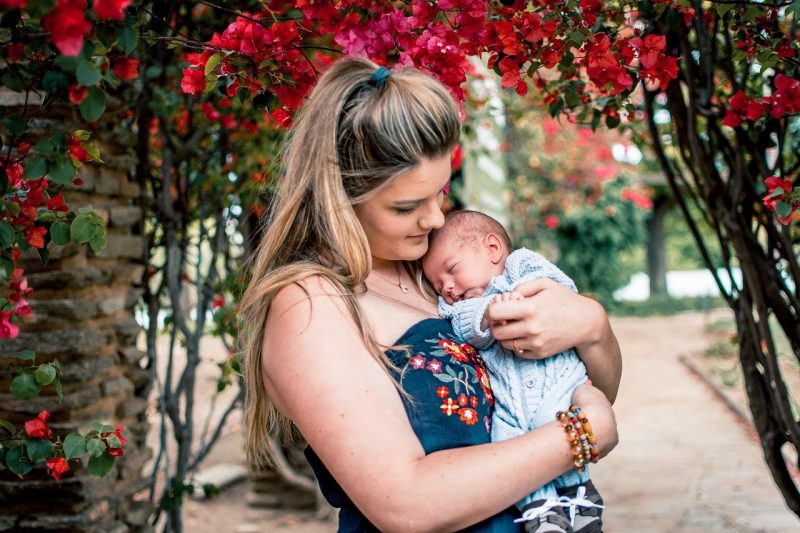Between juggling home-schooling, home working, or coping with pregnancy, there has been little opportunity for mums to take care of their own mental health. So far, the pandemic has been an uphill battle for parents everywhere, and mums need mental health support now more than ever.
What has the pandemic meant for mums’ mental health?
The pandemic hasn’t been easy for anyone, but studies show that new mums have been hit particularly hard. Before the public health crisis, around 20 per cent of women encountered mental health difficulties during their pregnancy or just after having their baby. One report carried out by leading maternal mental health organisations revealed that, during lockdown, six in ten mothers had substantial concerns about their mental health. This finding, from a poll of 5,000 pregnant women and parents, shows a big increase from the pre-pandemic numbers.
Clearly, pressures for new mums have been higher than ever over the course of the pandemic, and many different factors have contributed to this. For example, many pregnant women felt anxious about the prospect of having to give birth without a partner by their side, due to restrictions. Other concerns have come from financial worries, with many parents being furloughed or made redundant during the pandemic. Of course, we also can’t forget about the general feelings of uncertainty and loneliness that have affected people from every demographic during the pandemic.
It isn’t only pregnant women and new mums that have faced difficulties during the past year. Parents with older children have had a lot to contend with, including the stress of childcare with prolonged school closures. Many mums of pre-teen children have reported that they have felt depressed and anxious while trying to balance home-schooling as well as their own jobs.
Research has shown that school closures across England have damaged the mental health of many mums. However, the closures don’t seem to have had the same dramatic impact on the well-being of dads. Experts from Essex, Surrey and Birmingham universities claim that the pandemic has had “a significant detrimental effect” on mums’ mental health, but “for fathers, it made no difference”. Even though gender roles have come a long way in terms of parenting, women still often take on the majority of the childcare, and this has caused stress in the midst of the pandemic.
How to support mums
There are many ways in which you can show support to any mums in your life, whether they’re a family member, a co-worker, a neighbour, or a friend. If you’re a mum yourself, know that you’re not in it alone! The pandemic has made many mums feel isolated and disconnected from the world, but the best thing you can do is to join forces, talk things through, and support each other. Keep in contact with other mums, whether through online support groups or by finding time to meet up in real life now that restrictions are easing.
If you’re not a mum yourself, there’s still plenty that you can do to ease the mental health strain on any mums you know. Check-in with them frequently – both the new mums that are finding their feet and the mums with older kids who might look like they’ve got it all worked out from the outside. Often, people find it difficult to ask for help (especially in a society in which we act like mums can magically do it all!), so be sure to check in on your friends with kids just to make sure they’re doing okay.
For new mums or pregnant women, even the smallest of gestures could make the world of difference. When navigating pregnancy or new parenthood, it can be impossible to find time to do anything nice for yourself, so that’s where good friends come in. For example, you could start a meal train with some friends and drop off a favourite lunch or a coffee once a week for a new mum. You could also try to text and see if there’s anything your pregnant friend needs when you go shopping, such as maternity pads, prenatal vitamins, or their favourite snack. It might seem like a small gesture to you, but it’ll probably make all the difference for her.
If you have a co-worker or employee who is pregnant or looking after her kids, try to cut her a bit of slack. Balancing working from home and looking after children can feel like an impossible task. So, if you go easy on her and make sure she knows that people at work are aware of what she’s coping with, her stress is sure to be reduced.
The more aware we are of what other people have been going through with their mental health, the better. Check in on your friends, loved ones, and co-workers, and remember that even as things are getting back to normal, lots of people are still fighting an uphill battle with their mental health. If we come together as families and communities, however, there are so many powerful ways (both big and small) in which we can make the world of difference to mums’ mental health.
Sources
https://www.centreformentalhealth.org.uk/publications/maternal-mental-health-during-pandemic
https://www.independent.co.uk/news/health/mental-health-pregnant-women-pandemic-b1817491.html










